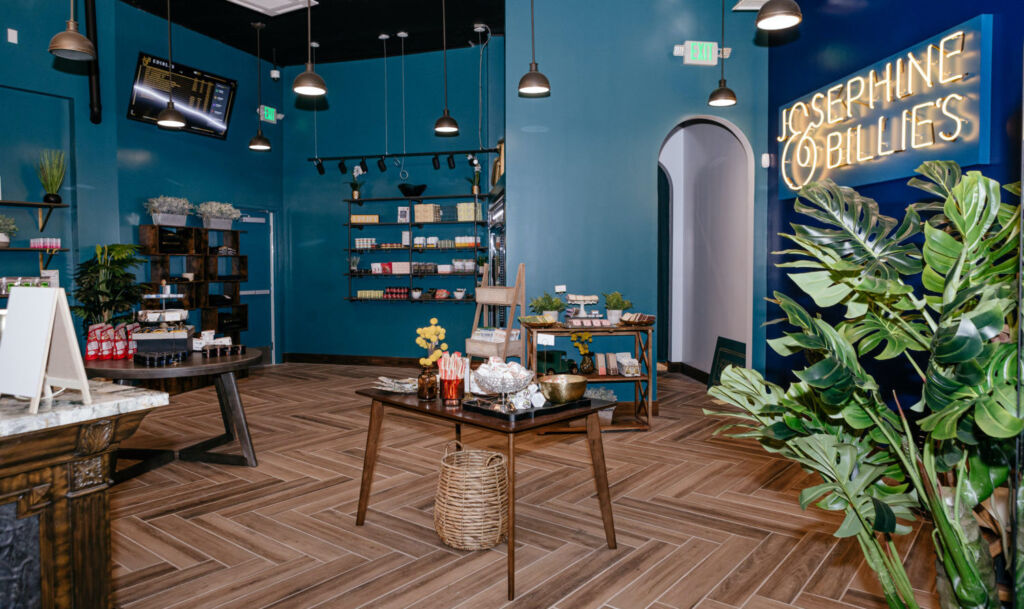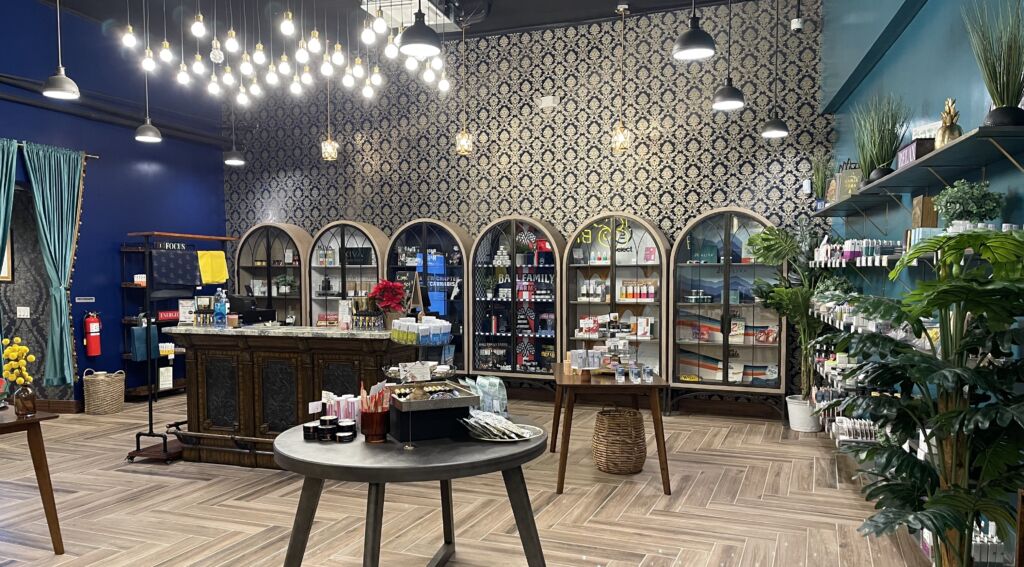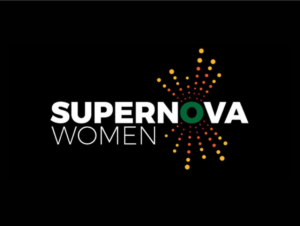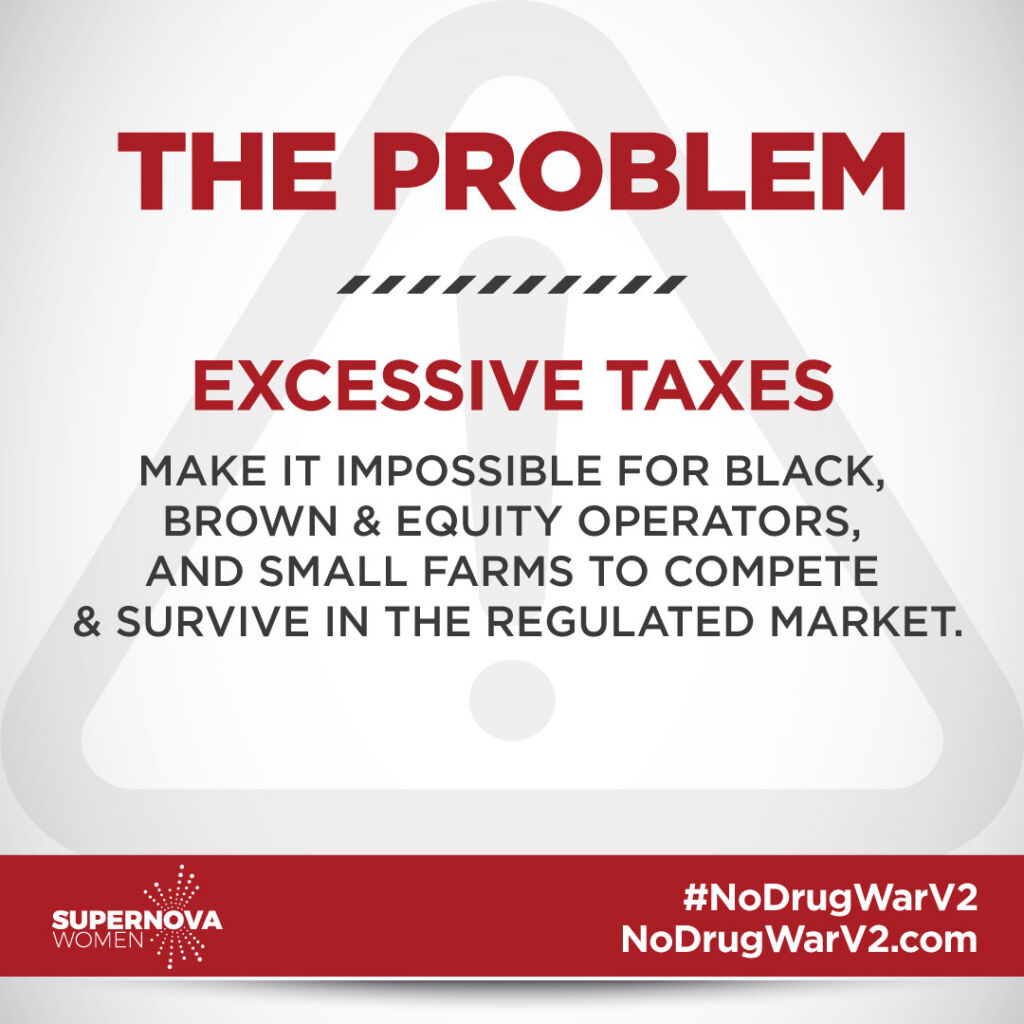This time last year, CEO of FlowerHire, David Belsky, spoke with Whitney Beaty, CEO of Apothecarry and Josephine & Billie’s. Watch Talent in Cannabis sunset sesh with Whitney Beatty.
Last year, February 2021, Josephine & Billie’s was not open yet – and a lot has happened since then.
In this interview, we revisit the discussion points from last year to see what has changed in the last 12 months. We discuss:
How Eaze’s momentum accelerator and investment from The Parent Company Social Equity Fund – which is led by their chief innovation officer (and billionare rapper, songwriter, record executive, entrepreneur, and media proprietor), Jay-Z – jumpstarted the opening of Josephine & Billie’s
What the process of opening a cannabis dispensary was like
Future plans for Josephine & Billie’s
Changes seen in the social equity licensure system
The strides Supernova Women has made to support social equity businesses, including The Impact Report.
Josephine & Billie’s is named after Josephine Baker and Billie Holiday – two groundbreaking and influential Black women, entertainers, and civil rights activists. The dispensary, designed by and for women of color, has speakeasy vibes and is a callback to the Jazz age.
(Visit the dispensary at 1535 W Martin Luther King Jr Blvd, Los Angeles, CA 90062.)

I’D LOVE TO HEAR ABOUT WHAT’S HAPPENED IN THE PAST YEAR SINCE THE LAST TIME WE SPOKE.
When we spoke in February of last year, it was pre-open, pre-licensure, and before I even got the investment. We were still pushing just to get the concept off the ground.
 In March I had gotten accepted into Eaze’s momentum accelerator. This was awesome because it came with a $50,000 non-dilutive grant. Getting our hands on some money allowed us to continue pushing forward.
In March I had gotten accepted into Eaze’s momentum accelerator. This was awesome because it came with a $50,000 non-dilutive grant. Getting our hands on some money allowed us to continue pushing forward.
 By May, we had landed our first investment from The Parent Company Social Equity Fund, which is led by their chief innovation officer, Jay Z.
By May, we had landed our first investment from The Parent Company Social Equity Fund, which is led by their chief innovation officer, Jay Z.
Once we got that as a lead investor, we started doing construction, and it was full speed ahead.
By August, we had finished the licensing process and finally gotten our license from the city and state
We finished our construction in October and open the store on October 29, 2021.

WHAT WERE SOME OF THE EMOTIONS GOING ON THROUGH THAT WHOLE EXPERIENCE?
It was insane. It was really insane. The only thing that I can compare it to is running a marathon.
Trying to balance everything at the same time was difficult. A lot of times we were marching forward not knowing where our next dollar was going to come from. But we really believed in the concept and our ability to succeed. It was like, we’re going to continue to march forward because we believe that the next dollar will come from somewhere – and we need to be ready when it shows up. And oddly enough, that worked for us. We believed and we put it out into the universe and the universe fed it back to us.
It really was an emotional time, and a really busy time. Launching a business like this, the amount of time and effort that went into it was absolutely insane. I felt like I was living at the store. My business partner and I were burning the candle at every end, trying to get ready to open. When you’re not open, you’re not making money. And every day you’re not making money, you’re burning funds.
There are so many moving parts that have to be taken care of. It was an absolutely insane adventure.
IS THERE ANYTHING THAT HELPED YOU KEEP THE BALANCE DURING THE PROCESS?
Through that process, the only sanity, the best piece of sanity I had was my son. Because regardless of how hard I had to work, and how many things I had to get done, I still needed to be there for him. He still needed to be taken care of by his mom.
As much as I was in work mode 24 hours a day, seven days a week, my son was the only thing that could get me to stop and take a break. Every day I had to make sure there was dinner on the table and that I was having real-life conversations with my kid. He was my calm in the middle of an ongoing storm.
LAST YEAR, YOU SPOKE ABOUT WANTING TO GO VERTICAL AND WANTING A CONSUMPTION LOUNGE. WHERE ARE YOU WITH THAT?
The city of Los Angeles has not given out consumption licenses yet. As soon as those come out, we are prepared to launch a consumption lounge on-site. Currently, we have a place in the store that we use for education.
 As for vertical integration, we’ve already launched our first two products. We offer Josephine and Billy’s pre-rolls which we do in partnership with Ball Family Farms. They happen to be our best-selling product in the store. I think that speaks to the quality of the product coming out. Our customers love the brand which is super exciting for us.
As for vertical integration, we’ve already launched our first two products. We offer Josephine and Billy’s pre-rolls which we do in partnership with Ball Family Farms. They happen to be our best-selling product in the store. I think that speaks to the quality of the product coming out. Our customers love the brand which is super exciting for us.
Moving forward is all about growth. Our goal is to be a multi-state operator, inside and outside of California. It’s about trying to figure out, where do we want to expand to next? What does that look like? What communities could support our concept? We have our eyes firmly on legalization as it continues to move through the country for new markets that we think fit with our ethos.
WHAT ARE YOUR HOPES FOR THE CANNABIS SPACE?
My hope for the space includes really seeing more diversity and an inclusive supply chain throughout the industry as a whole. We’re in a position in Los Angeles, where we’re just now seeing social equity businesses and social equity licensees start to come online. I would like to see an expansion on that.
Communities of color have been disproportionately disenfranchised by the War on Drugs. Yet lack people are less than 4.3% of the industry. And licensed cannabis businesses that are less than 1% of the industry. It’s really disappointing to see that sort of participation from the people who are most likely to be arrested for the usage of cannabis. And so I want to see better participation across the board, and more diversity in this industry.

DURING THE OPENING OF JOSEPHINE & BILLIE’S, IS THERE ANYTHING THAT WAS UNEXPECTED OR SURPRISED YOU ABOUT THE PROCESS?
There weren’t really any surprises because I knew it was going to be a challenging process. I knew it was going to be difficult, and I knew it was gonna be long hours. But you don’t know what you don’t know. And there are so many things going into a dispensary that you just don’t know. There were countless times we’ve had to adjust, pivot, and move around. We’ve had to really be agile on an everyday basis. It’s been quite the hoop-jumping adventure.
The licensing process is neither easy nor fun – I have the utmost respect for anybody who can navigate it. You know, the regulations are not easy either. And while I went into it knowing compliance would be difficult, that’s the part that really got to me.
LAST YEAR, YOU TALKED A LOT ABOUT THE FLAWS OF THE SOCIAL EQUITY LICENSURE SYSTEM. HAVE YOU SEEN ANY POSITIVE CHANGE IN THAT THIS PAST YEAR?
We’ve seen some moves by larger corporations to prioritize investing in social equity businesses, or Black and Brown-owned businesses. That sort of investment is critical now and in the long term. This sort of investment is not charity. These businesses deserve funding. And they deserve equal funding.
And we’re looking at the numbers. The data is telling us that Black and Brown businesses are not getting equal funding. It’s telling us that female-led businesses are not getting equal funding. It’s telling us venture capitalists (VCs) are investing 2% of their money into female-led businesses, and point .0006% of their money into Black female-led businesses.
And when we know that it’s going to cost $1.5 million to $2 million, to get a dispensary off the ground, that’s saying it’s almost impossible for a Black female, for a Brown female to ever get a dispensary off the ground with investors because we can’t get the money. Because those figures are not cannabis-specific. They’re across every vertical. So yes, I think it’s incredibly important that we see these larger multi-state operators or these larger VCs start to invest their money in diverse businesses. We’ve seen that investing in Black and Brown female-led businesses can be as lucrative if not more lucrative than the money they’re investing in other places.
We’re still seeing predatory investment. When we don’t have the opportunity to have fair investment, you get investors who have an outsized amount of power over the social equity applicant.
The idea of social equity is that these investors are investing in businesses run by the social equity applicants – that they’re investing in their businesses. It’s not supposed to be that these businesses find the social equity applicant to sign on to their application, and then proceed to run their business as normal. It’s not supposed to be just a payout to an equity applicant in order to be able to use their name, and then that person doesn’t have any real influence over the business… That’s not the spirit nor the point of social equity. So I really would like to see more social equity applicants have control over their businesses, really be a part of their businesses, and have the ability to secure investment in a meaningful way.
SUPERNOVA WOMEN HAS BEEN DOING SOME INCREDIBLE THINGS LATELY SOCIAL EQUITY BUSINESSES. CAN YOU TALK ABOUT THAT?
Supernova Women is a 501(c)3 nonprofit organization founded in 2015 by Black and Brown women that works to empower Black and Brown people to become self-sufficient shareholders in the cannabis and natural plant medicine space through education, advocacy, and network building.
Yes, Supernova has been super busy. In the last couple of months, two of the things that we’ve been working on pretty loudly is:
Lowering taxes for social equity businesses
The Impact Report shows that a properly run Social Equity Program is a win for all parties involved
LOWERING TAXES FOR SOCIAL EQUITY BUSINESSES
We started a movement, No Drug War V2, that’s calling for the legislatures and the governor to eliminate cultivation and excise tax for social equity retailers. The legislature needs a 2/3 vote to reform taxes.
We had a rally in Oakland on November 29, 2021, and Sacramento on January 13, 2022. We rallied in the wake of a string of robberies and burglaries that happened in Oakland. A lot of these social equity businesses have been getting hit by robberies. They can’t afford to have round-the-clock security because of the lack of funding.
There’s a $45.7 billion budget surplus in California. And we know that there are critical funding issues going on with social equity businesses. If the state of California values social equity programs, one of the ways they can help alleviate the issue would be by eliminating that tax. We’ve heard Gavin Newsom, governor of California, is considering tax reform. We’re really excited to see what comes from that.
Eliminating these taxes would help enable social equity businesses to compete in the larger market.

THE IMPACT REPORT
We just released our survey called the Impact Report. The Impact Report is something that Supernova did with a company called Ecotone Analytics. Ecotone does data analytics for big companies and foundations all over the country. We got a donation from Weedmaps and used that money to have Ecotone do a study on the efficacy of social equity programs across the country.
The purpose is to lay out the facts and figures to make it clear to lawmakers and regulators that a properly run Social Equity Program is a win for all parties involved. The report is a detailed analysis of the estimated average cost per equity operator served by an envisioned Social Equity Program and the projected benefits generated by each social equity operator served.
We show the measured positive return on investment that a Cannabis Social Equity Program can produce for the communities most affected by the War on Drugs.
What we are able to show is that for every dollar put into social equity programs, the program will get $1.20 back. And depending on the program, and how it is implemented, they can get upwards of $4 back. We did this so we can hand it off to our fellow advocates across the country and municipalities. As cannabis legislation continues to spread, we want advocates to be able to have this information and insight to be able to advocate for equity programs within their own municipalities. The Impact Report gives them the data to back them up.
The FlowerHire team would like to thank Whitney Beatty for her leadership and persistence in making this industry a more equitable space.
If you want to make your cannabis organization more inclusive and just, you can find more resources in the article Taking Action Toward an Antiracist Cannabis Industry



